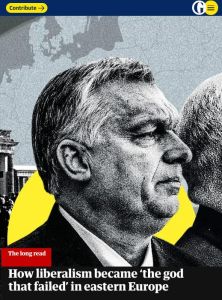Join getAbstract to access the summary!

Join getAbstract to access the summary!
Ivan Krastev and Stephen Holmes
How Liberalism Became ‘The God That Failed’ in Eastern Europe
The Guardian, 2019
What's inside?
Having ridded themselves of communism, Central and Eastern Europeans feel that liberalism is letting them down.
Recommendation
In his classic 1949 anthology of essays, The God That Failed, leftist author Arthur Koestler described his and other prominent Europeans’ conversion to and subsequent disillusionment with communism. When the Soviet communist empire collapsed in 1989, Central and Eastern European intellectuals almost unquestionably came to accept liberalism as the only vehicle to achieve social justice, prosperity and human fulfillment. Yet is liberalism turning into another “failing” god? In this edited excerpt of their book The Light That Failed: A Reckoning, Ivan Krastev and Stephen Holmes ask this question in a thought-provoking essay, which will be of interest to anyone troubled by the rise of illiberal populism across the West.
Summary
About the Authors
Ivan Krastev is a fellow at the Institute for Human Sciences in Vienna and the chairman of the Centre for Liberal Strategies in Sofia. Stephen Holmes is professor of law at New York University School of Law.


















Comment on this summary